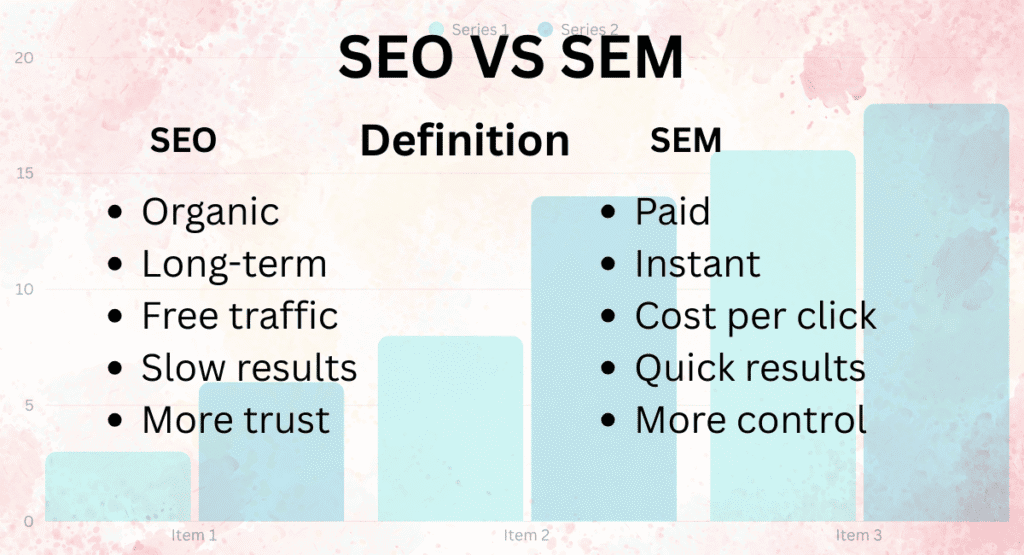Introduction
Affiliate marketing is one of the easiest ways to start earning online without investing in products or inventory. It allows you to promote other companies’ products and earn a commission for every sale or lead generated.
If you’re wondering “how to start affiliate marketing” or looking for ways to do affiliate marketing without investment, this guide is perfect for you. We’ll cover what affiliate marketing is, how it works, the best programs for beginners, strategies to promote products, and mistakes to avoid. By the end, you’ll have a clear roadmap to start your journey in affiliate marketing.
What is Affiliate Marketing?
Affiliate marketing is a performance-based marketing model where a business rewards an affiliate (you) for driving sales or leads through your promotional efforts.
Key Points About Affiliate Marketing
- You don’t need to create your own product.
- You earn a commission on sales or leads.
- It works for both physical products and digital products.
In simple terms, affiliate marketing for beginners is a way to earn passive income online by recommending products to your audience.

How Affiliate Marketing Works
Understanding the mechanics of affiliate marketing is essential before you start.
Step 1: Join an Affiliate Program
You first need to sign up for an affiliate program. Programs provide you with a unique affiliate link that tracks sales made through your promotions.
Step 2: Promote the Product
You share your affiliate link through blogs, social media, YouTube, email newsletters, or other channels. When someone clicks your link and makes a purchase, you earn a commission.
Step 3: Earn Commissions
Commissions vary depending on the program. Some offer a fixed amount per sale, while others provide a percentage of the sale value.
Example Flow of Affiliate Marketing
- User clicks your affiliate link.
- They are redirected to the merchant’s website.
- They make a purchase or complete a lead form.
- You earn a commission for that action.
Best Affiliate Programs for Beginners
Choosing the right affiliate program is crucial for success. Here are some popular options:
1. Amazon Associates
- One of the largest affiliate programs worldwide.
- Promotes physical products with a wide range of categories.
- Commission varies by product category (1–10%).
2. ClickBank
- Focuses on digital products like eBooks, software, and online courses.
- High commission rates, sometimes up to 75%.
- Easy for beginners to get started.
3. Impact
- Offers a wide range of products and brands.
- Provides advanced tracking tools for affiliates.
- Flexible payout options.
4. Digistore24
- Popular for digital products, online courses, and software.
- Easy registration process and beginner-friendly dashboard.
- Offers high commissions and recurring income options.
How to Promote Affiliate Products
Promoting products effectively is the key to earning commissions.
1. Blogging
- Write product reviews, tutorials, or comparison guides.
- Include your affiliate links naturally within the content.
2. YouTube Videos
- Create video reviews, unboxing videos, or tutorials.
- Add affiliate links in the description.
3. Social Media Marketing
- Use platforms like Instagram, TikTok, Facebook, or LinkedIn.
- Share tips, product demonstrations, or testimonials with affiliate links.
4. Email Marketing
- Build an email list and share valuable content with affiliate links.
- Send targeted offers based on subscribers’ interests.
5. Forums & Communities
- Participate in niche forums, Reddit, Quora, or Facebook groups.
- Provide helpful advice and include affiliate links when relevant.
Beginner Mistakes to Avoid
Starting affiliate marketing can be challenging. Avoid these mistakes to increase your chances of success:
1. Promoting Too Many Products
Focus on a few high-quality products in your niche instead of spreading yourself too thin.
2. Ignoring Your Audience
Understand your audience’s needs and promote products that solve their problems.
3. Not Tracking Results
Use tracking tools to monitor which links, campaigns, or channels are generating sales.
4. Over-Promoting Products
Balance content and promotion. Constantly pushing products can turn off your audience.
5. Expecting Instant Results
Affiliate marketing requires patience. Consistency in content creation and promotion is key to long-term success.
Final Thoughts
Affiliate marketing for beginners is a low-cost way to start earning online. By understanding how to start affiliate marketing, choosing the right programs, promoting effectively, and avoiding common mistakes, you can build a sustainable online income stream.
The beauty of affiliate marketing without investment is that anyone can start today. With dedication, creativity, and consistency, you can grow your online business and earn passive income by helping others find the products they need.
FAQ Section
1. What is affiliate marketing?
Affiliate marketing is a performance-based marketing model where you promote someone else’s products and earn a commission for each sale or lead generated through your referral.
2. How does affiliate marketing work?
You join an affiliate program, get a unique affiliate link, promote products through blogs, social media, or other channels, and earn commissions when someone makes a purchase or completes an action using your link.
3. Can I do affiliate marketing without investment?
Yes. You can start affiliate marketing without investing in products or ads. Use free platforms like blogs, YouTube, social media, or email marketing to promote affiliate products.
4. Which are the best affiliate programs for beginners?
Popular programs include Amazon Associates, ClickBank, Impact, and Digistore24. These programs are beginner-friendly and offer a wide range of products to promote.
5. How can I promote affiliate products effectively?
Use content marketing like blogs, YouTube videos, social media posts, email newsletters, and niche forums. Focus on providing value and including your affiliate links naturally.
6. What mistakes should beginners avoid in affiliate marketing?
Avoid promoting too many products, ignoring your audience’s needs, not tracking results, over-promoting, and expecting instant results. Focus on consistency and quality.

